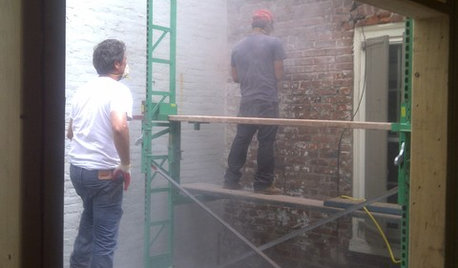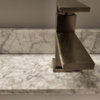'shocking' problem and replace water heater element
smilier
12 years ago
Related Stories

GREAT HOME PROJECTSHow to Switch to a Tankless Water Heater
New project for a new year: Swap your conventional heater for an energy-saving model — and don’t be fooled by misinformation
Full Story
GREAT HOME PROJECTSHow to Add a Solar Water Heater
Lower energy bills without a major renovation by putting the sun to work heating your home’s water
Full Story
REMODELING GUIDESThe Hidden Problems in Old Houses
Before snatching up an old home, get to know what you’re in for by understanding the potential horrors that lurk below the surface
Full Story
GREAT HOME PROJECTSHow to Replace Your Lawn With a Garden
New project for a new year: Lose the turfgrass for energy savings, wildlife friendliness and lower maintenance
Full Story
HOUSEKEEPING10 Problems Your House May Be Trying to Show You
Ignore some of these signs and you may end up with major issues. We tell you which are normal and which are cause for concern
Full Story
DECORATING GUIDESSolve Privacy Problems With Window Film
Let the light in and keep prying eyes out with an inexpensive and decorative window film you can apply yourself
Full Story
REMODELING GUIDESReplace vs. Restore: The Great Window Debate
Deciding what to do with windows in disrepair isn't easy. This insight on the pros and cons of window replacement or restoration can help
Full Story
GARDENING AND LANDSCAPING10 Elements of a Porch Paradise
If dreamy days with breezy chats and lazy lounging are your cup of tea, see how to pull your porch together to bring your vision to life
Full Story
KITCHEN DESIGN6 Elements of an Effective Kitchen Office
Create a successful mini workspace with these features in mind
Full Story
GARDENING GUIDES4 Elements of a Stunning Fall Garden
Late summer is a good time to look beyond trees to create an autumn landscape that draws the eye and stirs the soul
Full StoryMore Discussions







lazypup
asolo
Related Professionals
Boise Plumbers · Worcester Plumbers · Millbury Handyman · Adelphi Kitchen & Bathroom Remodelers · Fullerton Kitchen & Bathroom Remodelers · Avondale Kitchen & Bathroom Remodelers · Eagle Kitchen & Bathroom Remodelers · Glendale Kitchen & Bathroom Remodelers · Mesquite Kitchen & Bathroom Remodelers · Overland Park Kitchen & Bathroom Remodelers · Park Ridge Kitchen & Bathroom Remodelers · Pueblo Kitchen & Bathroom Remodelers · Terrell Kitchen & Bathroom Remodelers · Warren Kitchen & Bathroom Remodelers · Mountain Top Kitchen & Bathroom Remodelersbrickeyee
rjh2o
brickeyee
sparky823
smilierOriginal Author
asolo
jakethewonderdog
dan_martyn
brickeyee
asolo
brickeyee
asolo
User
brickeyee
jakethewonderdog
smilierOriginal Author
bus_driver
brickeyee
bus_driver
alphonse
Chauna Garofalo-a
Jake The Wonderdog